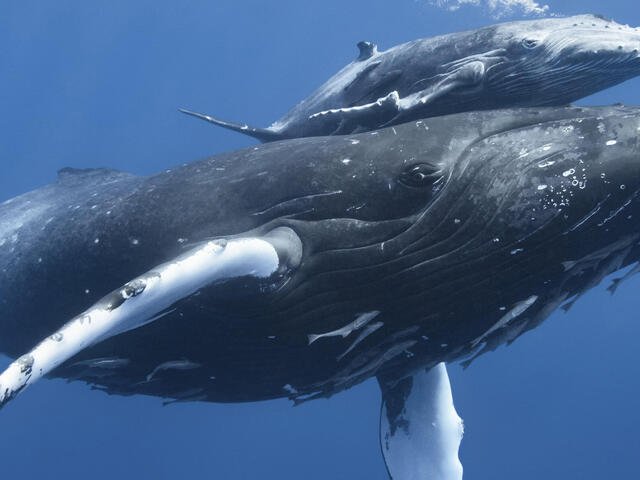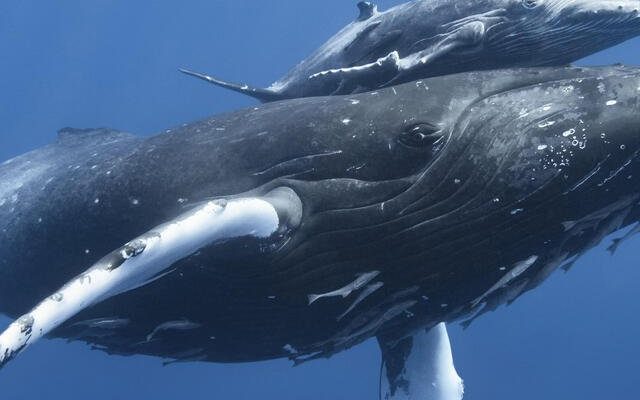
Pollution: A Silent Killer
When we think about pollution, we often picture smoggy cities or litter-strewn beaches. But for whales, the ocean is their home, and it’s being affected by various types of pollution. From plastic debris to toxic chemicals, the waters they swim in can be quite dangerous. Here’s the thing—many of these pollutants break down into small particles, which can be mistaken for food by whales and other marine life.
For example, microplastics are tiny pieces of plastic that come from broken-down larger items like bags and bottles. When whales ingest these plastics, it can lead to severe health problems, including malnutrition or even death. Additionally, chemicals like heavy metals and pesticides can accumulate in whales’ bodies, affecting their reproductive systems and overall health.
Noise Pollution
Whales communicate often through complex songs and calls, which travel long distances underwater. Unfortunately, increasing noise pollution from ships, industrial activities, and other human-made sources disrupts this communication. Imagine trying to have a conversation in a crowded, loud room—it’s tough, right? That’s what whales face daily.
This noise can lead to stress for whales, affecting their ability to find mates, locate food, and even navigate. Some researchers believe this disruption could lead to changes in migration patterns and reduce the effectiveness of social bonding among pods of whales. It’s a concerning cycle that can harm their community dynamics.
Climate Change and Its Consequences
Climate change is a topic that often feels overwhelming, but its impact on whale populations is both real and significant. As ocean temperatures rise, the habitats of many marine species shift. This can lead to changes in the availability of prey for whales, making it harder for them to find enough food.
For example, as ice melts in polar regions, some whale species that rely on cold-water ecosystems may find their habitats disappearing. Additionally, ocean acidification, a result of increased carbon dioxide in the atmosphere, affects the food web. As the basic building blocks of the ocean change, the ripple effect can harm populations of krill and other small fish that whales depend on for survival.
Impact of Habitat Loss
When we talk about habitat loss, it’s not just about physical space but also about the environmental quality. Coastal development projects, like building resorts or ports, can destroy essential feeding and breeding areas. Imagine bulldozing a forest—it’s not just the trees that disappear; the entire ecosystem suffers, and the same applies to marine environments.
Moreover, habitat loss doesn’t always come from development. Natural disasters and climate changes can lead to erosion of underwater habitats, which are crucial for whale species that rely on specific areas for mating or feeding. Protecting these habitats is essential for maintaining healthy whale populations.
Ship Strikes: A Deadly Encounter
With increasing maritime traffic, the risk of ship strikes on whales has grown significantly. These massive vessels travel at high speeds and can be difficult to detect in the ocean, especially for large whales swimming near the surface. It’s heartbreaking to think that such a simple interaction could end in tragedy.
Whale species like the North Atlantic right whale are particularly vulnerable, with only about 350 individuals left. Research shows that many whales are struck by ships each year, leading to severe injuries or fatalities. Solutions are being explored, such as rerouting ships or slowing down during migratory seasons, to reduce these risks. It’s a shared responsibility we all have to ensure the safety of these gentle giants.
Entanglement in Fishing Gear
Whales often find themselves in dangerous situations due to fishing gear. They can become entangled in nets and lines, which can lead to serious injuries or even death. Picture trying to swim while tangled in a net—it’s not only physically exhausting but can also prevent them from feeding or moving freely.
This issue is especially concerning for species like the humpback whale, which often swim near fishing operations. Some organizations have been working hard to develop gear that minimizes this risk, but it’s an ongoing battle. Awareness and support for sustainable fishing practices can go a long way in helping these beautiful creatures.
The Role of Conservation Efforts
Despite these threats, there’s hope! Conservation efforts play a crucial role in protecting whales and their habitats. Many organizations work to raise awareness about the issues whales face, push for better regulations on shipping and fishing, and conduct research to understand their needs better.
For example, technology is being used to track whale populations and monitor their migrations. This data helps scientists learn about their behaviors and habitats, which is vital for creating effective conservation strategies. Supporting these efforts is essential; every little bit counts in the fight for clear oceans and thriving whale populations.
Community and Global Initiatives
Community involvement is also crucial for whale conservation. Local groups often participate in clean-up projects, educational campaigns, and wildlife monitoring. By getting involved, people can make a real difference, and it’s a great way to connect with nature and foster a sense of responsibility for our oceans.
On a larger scale, international agreements, like the Marine Mammal Protection Act, aim to ensure the safety of marine mammals. Countries are coming together to create protected areas and regulations that benefit whales and their ecosystems.
Final Thoughts
Whales face numerous threats, but understanding these challenges is the first step towards protecting them. From pollution and climate change to ship strikes and habitat loss, each issue requires attention and action. We all have a part to play in making our oceans safer for these incredible creatures.
So, next time you think about whales, remember that they’re not just beautiful beings—they’re part of a complex ecosystem that needs our help. Whether it’s reducing plastic usage, supporting sustainable fishing, or simply spreading awareness, every action can contribute to the health of our oceans and the survival of whales. Let’s work together to ensure these majestic mammals continue to thrive in the wild.

